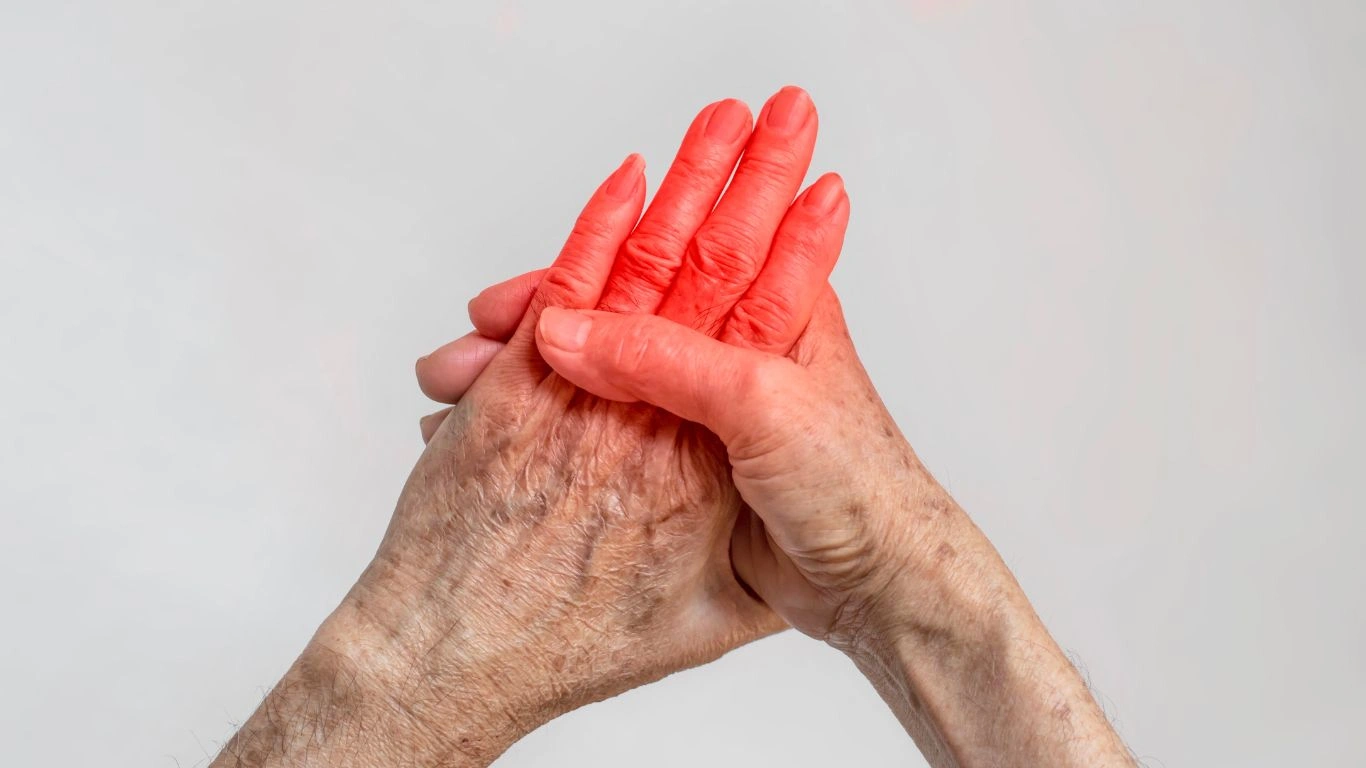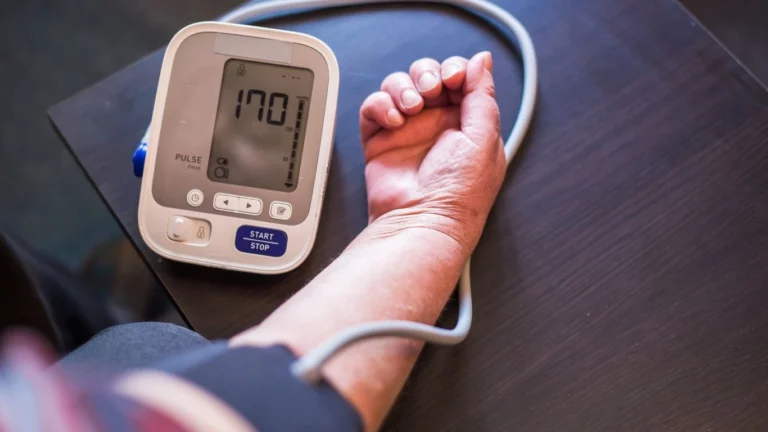Can Rheumatoid Arthritis Cause Stomach Pain? Surprising Truths
Can rheumatoid arthritis cause stomach pain? You wouldn’t believe how often I hear this question in clinic, usually right after a patient notices gut issues cropping up alongside their joint flares. At first glance, it might seem like the two aren’t connected—joints and stomach? But as someone who works closely with autoimmune patients every day, I can tell you there’s more overlap than people realize. Let’s dig into what’s really going on here, because yes—RA and tummy troubles can absolutely go hand in hand, and it’s not just coincidence.
Understanding the RA-Gut Connection

What Is Rheumatoid Arthritis, Really?
Most folks think of rheumatoid arthritis (RA) as a joint disease—and yes, it definitely attacks joints first. But RA is actually a systemic autoimmune disease. That means your immune system, which is supposed to protect you, gets a little trigger-happy and starts attacking healthy tissue. Usually, this means the synovial lining of your joints, but RA doesn’t always stop there.
In my years of treating patients with RA, I’ve seen the inflammation reach far beyond joints—to the skin, lungs, eyes, and yes, even the digestive system. RA doesn’t just target one place; it can affect the entire body.
So, Can Rheumatoid Arthritis Cause Stomach Pain?
Absolutely. And there are a few key ways this happens. Sometimes it’s the disease itself causing issues, and other times it’s the treatments we use to manage it. I’ll break it down, because knowing the “why” helps you know what to do next.
1. Medication Side Effects: The Usual Suspect

The Gut Punch from NSAIDs
RA patients are no strangers to nonsteroidal anti-inflammatory drugs (NSAIDs)—think ibuprofen or naproxen. These meds can work wonders on joint pain and inflammation, but they’re notorious for messing with your stomach. We’re talking ulcers, gastritis, reflux—you name it. I’ve had patients end up in the ER with GI bleeding after popping NSAIDs for just a few weeks without food.
If you’ve been taking NSAIDs regularly and notice stomach cramps, burning, or nausea, that might be your red flag. And please, don’t just “push through” the pain—let your provider know. It’s not about being tough; it’s about being smart.
DMARDs and Biologics: Helpful but Not Harmless
We also use disease-modifying antirheumatic drugs (DMARDs) like methotrexate or biologics like Humira. These can be a game-changer for joint health but can also come with GI side effects. Methotrexate especially tends to cause nausea, vomiting, and abdominal discomfort. I always warn my new patients about this—it doesn’t happen to everyone, but it’s common enough that it’s worth watching out for.
For some, it’s about adjusting the dose. For others, we might switch the route (like from oral to injection) or try anti-nausea meds. Bottom line: you’ve got options, but you’ve gotta speak up.
2. The Autoimmune Link: Inflammation Beyond Joints

RA Doesn’t Always Play Fair
Remember how I said RA is systemic? That means it can affect the gastrointestinal tract directly. Some patients experience what we call RA-related enteritis—basically inflammation of the small intestine. It’s less common than joint issues, sure, but it’s real. I’ve seen patients with RA who get chronic bloating, stomach cramps, and even changes in bowel habits without any other obvious cause.
One patient of mine—a sweet woman in her 60s—came in thinking she had a stomach bug. But after running some labs and doing imaging, we figured out her RA was flaring in her gut. Once we adjusted her treatment, the pain eased up.
Leaky Gut and Dysbiosis
Here’s where it gets really interesting. Some research suggests that the gut microbiome—aka the trillions of bacteria in your digestive tract—might play a role in RA itself. There’s a theory that RA may actually start in the gut for some people, triggered by an imbalance in gut bacteria or something called leaky gut syndrome.
When the lining of the gut gets compromised, it can let unwanted stuff—like toxins and bacteria—sneak into the bloodstream. This triggers inflammation and could potentially set off an autoimmune response. It’s still a growing area of research, but the links are strong enough that I always recommend my RA patients pay attention to their gut health.
3. Stress, RA, and the Gut-Brain Axis
Why Flare-Ups Feel Worse When You’re Stressed
Here’s something most people overlook: stress is a major player in both autoimmune conditions and digestive issues. I’ve lost count of how many patients tell me their RA flares get worse during stressful life events—and at the same time, their stomach starts acting up too. That’s not coincidence; that’s the gut-brain axis doing its thing.
Stress can increase inflammation, slow digestion, cause stomach cramping, and even change the way your body absorbs nutrients. It’s wild, but it’s real. If you’re managing RA, stress reduction isn’t just a bonus—it’s part of your treatment plan. Whether it’s yoga, therapy, walking, or journaling, you need a toolkit to manage stress. Your gut (and your joints) will thank you.
Quick Tip from the Clinic
- Keep a symptom diary—it helps identify patterns between meds, food, stress, and pain.
- Don’t ignore subtle symptoms like bloating or early satiety. They matter.
- If your stomach pain gets worse with meds, ask your provider about adding a PPI (proton pump inhibitor) for stomach protection.
4. Food Sensitivities and Dietary Triggers in RA

Not Just in Your Head—Food Really Can Affect RA and Gut Health
I’ve had more than a few patients come in saying, “Tarra, every time I eat XYZ, my stomach goes nuts and my joints hurt more the next day.” And honestly? I believe them. RA can make your body more reactive to certain foods, and when your immune system’s already on edge, even mild sensitivities can feel like a full-blown flare-up.
There’s no one-size-fits-all trigger list, but some of the most common culprits I see in clinic are:
- Gluten
- Dairy
- Processed sugars
- Nightshades (like tomatoes, peppers, eggplant)
Do you need to cut everything out permanently? Nope. But doing an elimination diet under the guidance of your healthcare provider or dietitian can really help uncover which foods might be adding fuel to your inflammation fire. Trust me, a few weeks of food journaling can tell us a lot more than bloodwork sometimes.
The Anti-Inflammatory Diet: Not Just Hype
One thing I consistently recommend is shifting toward a more anti-inflammatory eating pattern. Think colorful veggies, wild-caught fish, olive oil, turmeric, ginger—all the good stuff. Not only does this type of diet support your joints, but it’s also gentle on your gut. I’ve had patients who couldn’t even finish a meal without pain, and once they cleaned up their diet? Night and day difference.
And hey, I get it—we all love comfort food. But once you realize that what you eat today can affect how your knees feel tomorrow? That’s a game-changer.
5. IBS, IBD, and Other GI Conditions Often Overlooked in RA

Sometimes It’s Not Just RA—It’s Something More
Now here’s something important: not every case of stomach pain in an RA patient is directly from the RA. Sometimes, there’s another GI condition tagging along. In fact, people with autoimmune diseases like RA are at increased risk for developing other autoimmune issues—especially in the gut.
Here’s a quick breakdown of common conditions I watch for when an RA patient reports digestive symptoms:
- Irritable Bowel Syndrome (IBS) – Often linked with stress and gut sensitivity, not inflammation per se.
- Inflammatory Bowel Disease (IBD) – Crohn’s and ulcerative colitis are autoimmune in nature and can co-occur with RA.
- Celiac Disease – Gluten intolerance that causes immune-mediated damage to the small intestine.
One of my patients had joint pain that improved with biologics, but her bloating and diarrhea wouldn’t budge. A gastroenterology referral and some testing later—turns out she had celiac disease all along. Once we got her on a gluten-free plan, her gut (and joints!) thanked her for it.
When to Dig Deeper
If you’ve got RA and are dealing with any of the following, don’t ignore it:
- Chronic bloating or cramping
- Unexplained weight loss
- Blood in your stool
- Frequent diarrhea or constipation that doesn’t resolve
These are signs something more than “just RA” might be going on. You might need a GI workup—labs, imaging, or even a scope—to get to the root of it.
6. Gut Healing Strategies That Actually Help

Supporting Your Gut While Managing RA
Let’s talk solutions. I’m all about practical, realistic steps you can take to feel better—because let’s be honest, you’ve got enough on your plate already. Here are a few tried-and-true gut-friendly strategies I recommend to my RA patients regularly:
- Probiotics and prebiotics: These help nourish your gut microbiome, which may support immune balance. I usually start with a high-quality, multi-strain probiotic—not just the cheap stuff off the shelf.
- L-glutamine: An amino acid that can help support the gut lining. Especially useful in cases of suspected leaky gut or chronic inflammation.
- Bone broth: Old school, but seriously comforting and rich in collagen and amino acids. A warm mug a day can soothe an inflamed gut.
- Stress management: Yoga, meditation, or even 10-minute deep-breathing breaks between patients—anything that calms your nervous system also calms your gut.
A Note About Supplements
I always advise my patients: don’t go overboard on supplements. Just because it’s natural doesn’t mean it’s harmless. I’ve seen folks with RA pile on ten different gut-healing powders and end up with worse symptoms from the overload. Talk with your provider first, and go one step at a time.
7. Listening to Your Body (and Trusting It)
Your Symptoms Are Valid
If there’s one message I want you to take from all this—it’s that your body is talking, and your symptoms are valid. If your stomach pain feels “off” or like it’s more than just a bad lunch, trust that instinct. Especially if you’re living with RA, gut symptoms should never be brushed aside as unrelated or “just stress.”
In clinic, I always tell my patients: you know your body better than anyone else. My job is to help you connect the dots. So whether it’s tweaking your meds, adjusting your diet, or referring you out for further testing—don’t hesitate to bring it up. It’s all connected, and it all matters.
8. When to Talk to Your Rheumatologist About Stomach Pain

Don’t Wait Until It’s “Bad Enough”
If I had a dollar for every time someone said, “I didn’t want to bother you—it’s probably nothing,” I’d have a whole clinic full of ergonomic chairs. Here’s the truth: you are never a bother, especially when it comes to symptoms that don’t feel right. RA can be sneaky. Stomach pain may seem minor at first, but it could be your body waving a little red flag.
As a Rheumatology Nurse Practitioner, I’ve seen how early conversations often save folks from bigger issues down the road. Whether it’s medication-induced GI trouble, an overlapping autoimmune condition, or an unrelated gut problem that needs attention—if your belly is speaking up, we need to listen.
What to Bring Up in Your Appointment
- How long the stomach symptoms have been going on
- Any patterns you’ve noticed (foods, stress, meds, menstrual cycle)
- Whether it worsens after medication or during flares
- Any new supplements or dietary changes
We can only help with what we know. So even if it feels small or “TMI,” bring it up. Trust me, we’ve heard it all—and your quality of life matters way more than your discomfort over sharing details.

Living Well Doesn’t Mean Perfect
Here’s something I always tell my patients: you can live a full, vibrant life with RA—even if stomach issues are in the mix. Will there be bumps in the road? Definitely. Will every day be pain-free? Probably not. But with the right tools, support, and mindset, you can absolutely thrive.
And thriving doesn’t mean pretending you’re fine when you’re not. It means being in tune with your body, asking for help when you need it, and creating routines that support your gut, your joints, and your peace of mind.
Tips My Patients Swear By
- Stay prepared: Keep snacks and your meds on hand, especially when eating out. A little planning goes a long way.
- Choose your battles: Some days you meal prep and stretch, others you microwave soup and rest. Both are valid.
- Don’t isolate: Talk to someone. Whether it’s your provider, therapist, or a friend who gets it—connection is medicine too.
- Move your body: Gentle movement like walking or yoga helps digestion and joint health. Even five minutes counts.
And a little pro tip from clinic life? Don’t underestimate the power of a warm compress and a good nap. Seriously—it’s underrated therapy.
10. Supporting the Whole You: RA Isn’t Just About Joints
Integrative Care Is the Future
We’re finally seeing a shift in how we treat RA—not just as a joint disease, but as a condition that affects the whole person. That means rheumatology working hand-in-hand with gastroenterology, nutrition, mental health, and even physical therapy. I love being part of a care team where we all bring our piece to the puzzle, because it’s never just about the joints. Never just the meds. Never just the labs.
It’s about you—the whole person. And when you’ve got persistent stomach issues, we treat those with the same urgency and compassion as swollen knees or tender wrists. Because your gut health is your health, period.
Advocating for Yourself (And How to Start)
If this article lit a lightbulb for you—awesome. That’s step one. Next step? Advocate. Make the call. Book the appointment. Ask the question. And if you don’t feel heard the first time, ask again. Your health isn’t a favor someone grants you—it’s your right. And you deserve a provider who takes your symptoms seriously.
References
- National Institutes of Health (NIH)
- Health.com
- Centers for Disease Control and Prevention (CDC)
- Mayo Clinic
- Arthritis Foundation
Disclaimer
This article is intended for informational purposes only and does not replace professional medical advice, diagnosis, or treatment. Always consult your healthcare provider before making changes to your treatment plan, especially if you’re experiencing new or worsening symptoms. The content here reflects my clinical experience as a Rheumatology Nurse Practitioner but should not be used as a substitute for direct medical care.

Tarra Nugroho is a dedicated Nurse Practitioner with a strong foundation in family and preventive care. She brings both compassion and clinical expertise to her practice, focusing on patient-centered care and health education. As a contributor to Healthusias.com, Tarra translates medical knowledge into clear, empowering articles on topics like women’s health, chronic disease management, and lifestyle medicine. Her mission is simple: help people feel seen, heard, and informed—both in the clinic and through the content she creates. When she’s not caring for patients, Tarra enjoys weekend hikes, plant-based cooking, and curling up with a good health podcast.







